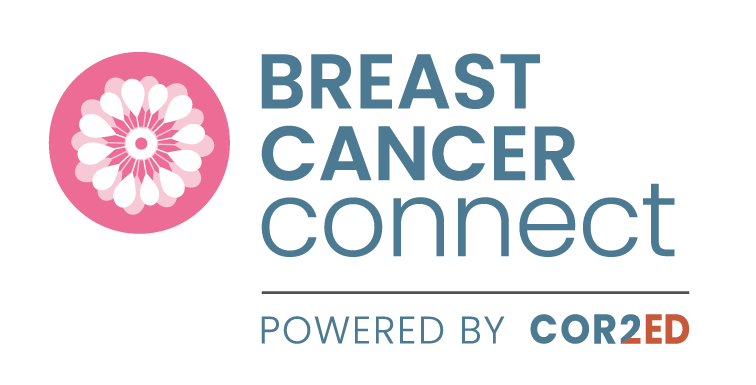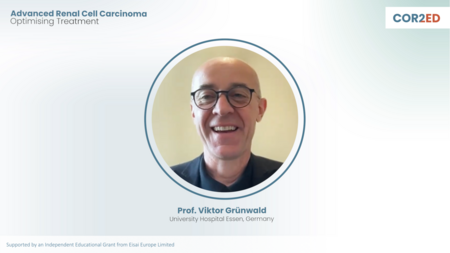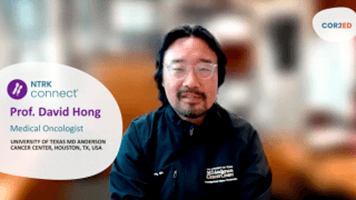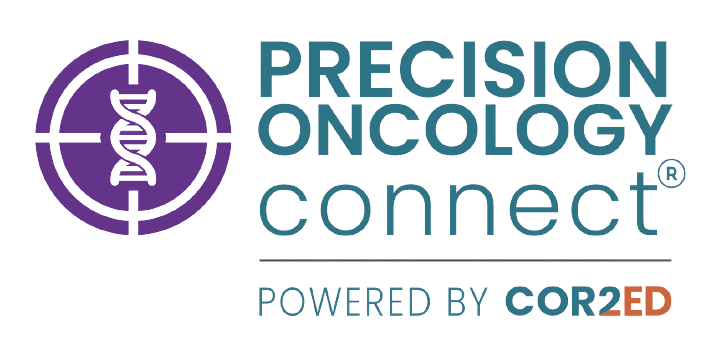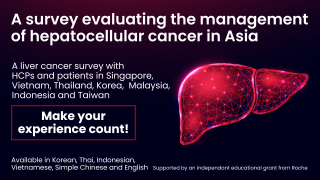
Shared decision-making between nmCRPC patients and the healthcare team (Part 2 of 3)
Shared decision-making between nmCRPC patients and the healthcare team (Part 2 of 3)
Joanie Pfahl and Jennifer Sutton explain the importance of informing and educating the patient, and why it is essential for nurses to have up-to-date knowledge.
Joanie Pfahl and Jennifer Sutton explain the importance of informing and educating the patient, and why it is essential for nurses to have up-to-date knowledge.
Joanie Pfahl, Jennifer Sutton
Watch the video and download the slides

Joanie Pfahl
Registered Nurse
Atlantic Urology Clinics
United States (US)
Joanie Pfahl has received financial support/sponsorship for research support, consultation, or speaker fees from the following companies:

Jennifer Sutton
Director of Nursing & Administration
Carolina Urologic Research Center
United States (US)
Jennifer Sutton has received financial support/sponsorship for research support, consultation, or speaker fees from the following companies:
|
4 min
|
Nov 2021
This programme was made for you: your opinion matters
Share your feedback in just 4 clicks and help us to continue to create the content you need.
I agree that this educational programme:
Was valuable to me:
1/4
Has improved my knowledge of this topic:
2/4
Is likely to change my clinical practice:
3/4
Was balanced and unbiased:
4/4
download resources
This programme was made for you: your opinion matters
Share your feedback in just 4 clicks and help us to continue to create the content you need.
I agree that this educational programme:
Was valuable to me:
1/4
Has improved my knowledge of this topic:
2/4
Is likely to change my clinical practice:
3/4
Was balanced and unbiased:
4/4
Hello, my name is Joanie Pfahl. I am a resident nurse with the Atlantic Urology Clinics in Myrtle Beach, South Carolina. I’m going to talk about: Strengthening shared decision making between non-metastatic castrate-resistant prostate cancer patients and the healthcare team, and how we can use the GUIDE communication framework to support discussions with our patients.
Inform and educate the patient about treatment options
We will be focusing on step 3 of the framework, which includes how and what are the best ways to inform and educate the patient with regards to their treatment options. Since 2018, the treatment landscape for non-metastatic CRPC has changed with the approval of three next-generation oral androgen receptor inhibitors. They are apalutamide: SPARTAN trial, enzalutamide: PROSPER trial, and darolutamide with ARAMIS trial.
With the availability of the new AR target option, oncology nurses play a crucial role in the decision-making process; with educating, supporting, and to help the patients manage their prostate cancer. While ensuring they receive the most appropriate information to help their treatment decisions. It is essential that we educate and inform patients regarding their treatment aims for non-metastatic CRPC, and they are: prolong survival, delay metastasis, alleviation of tumour-related symptoms, balancing potential benefits against likely treatment toxicity, and maintaining quality of life.
While no head-to-head comparison of apalutamide, enzalutamide and darolutamide have been conducted to date, all three have demonstrated comparable efficacy and maintained quality of life in the SPARTAN, PROSPER and ARAMIS trials, but they have differing AE profiles. So why is the GUIDE communication framework needed?
Shared decision-making
Nurses are seen as the go-to person for their patients with non-metastatic CRPC, and therefore must empower patients with guidance and support, throughout their treatment journey, ensure patients are provided with the right information with their treatment decisions and to help fill in the gaps with their patient’s knowledge, and to be an active member of the healthcare team, in delivering shared decision-making, so they can provide patients with the greatest chance of success and meaningful, prolonged length of survival; to see their new grandchild, to attend a wedding, to attend a graduation or to plan a vacation.
Please go to gunursesconnect.cor2ed.com to take an in-depth look at the prepared slides and thank you for listening to the GU NURSES CONNECT.
The GUIDE Communication Framework: Strengthening shared decision-making between nmCRPC patients and the healthcare team
This is the second in a series of three newsletters explaining the GUIDE Communication Framework, a simple 5-step approach to optimise the role of the nurse in strengthening shared decision-making between nmCRPC patients and their healthcare team.
GUIDE’s five letters each represent a crucial step in your conversations with patients with prostate cancer.
Gain insight into goals of treatment and care
Understand gaps in the patient's knowledge
Inform and educate
Direct to additional support
Empower the patient
Joanie Pfahl and Jennifer Sutton cover step 3 of the GUIDE Communication Framework and explain the importance of Informing and educating the patient, and why it is essential for nurses to have up-to-date knowledge about the disease and common symptoms, key studies relating to nmCRPC, treatment aims and options, potential side effects and proactive management as addressing patients’ knowledge gaps in the right way is critical in managing their treatment successfully.
In the first newsletter, Veerle Lamotte covered steps 1 and 2 of the GUIDE framework and explained why it’s important to Gain insight into the goals of treatment and care as a first step in supporting your patients along the agreed treatment journey and how to Understand the gaps in the patient’s knowledge, allowing you to prioritise where you focus when it comes to informing and educating the patient.
In the third newsletter, Jason Alcorn explains how to Direct the patient and the carer to additional support and the importance of Empowering the patient, making them feel they can actively participate in the shared decision-making and treatment process, and why these steps are an important part of a successful treatment journey.
GU NURSES CONNECT is an initiative of COR2ED, supported by an Independent Educational Grant from AstraZeneca, Bayer and Eisai Europe Limited.









